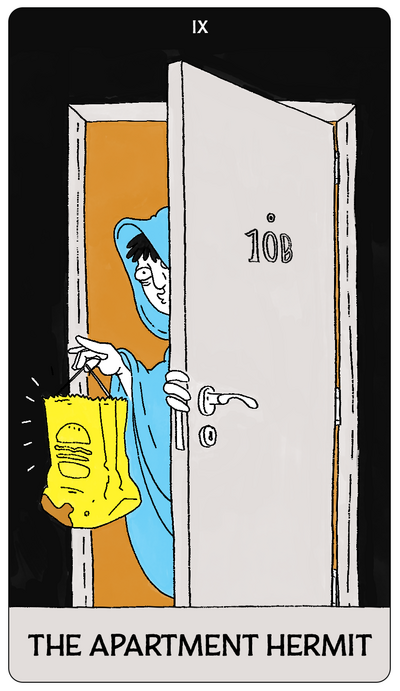Reading

The post The Craving appeared first on The Perry Bible Fellowship.

On September 25th, Matthew Saunders moderated a panel that included Frederik Wouters, Paul Johnson, and Jamie Abrahams. We conducted a working preview of how Drupal AI will show up at DrupalCon Vienna and what the Strategic Initiative has been building since the last Drupalcon. Vienna was less than three weeks out, and momentum across the initiative was clear. It was a walk through workshops, sessions, and real implementation paths that teams can apply on live sites. We recorded it, so you can watch the webinar as well.
Israel’s former top general sought donations from David Ellison and his father, Larry, as part of a billionaire coterie to fund digital paramilitaries aimed at sabotaging pro-Palestine activists. The leaked documents show one planner explaining, “In the jungle, we need more guerrillas and less IDF.” With Paramount and CBS News now under his control, the younger Ellison has installed self-described “Zionist fanatic” Bari Weiss as editor-in-chief. The new owner of Paramount, David Ellison, participated in an Israeli government-led plot to […]
The post New CBS owner David Ellison met with top Israeli general in scheme to spy on Americans first appeared on The Grayzone.
The post New CBS owner David Ellison met with top Israeli general in scheme to spy on Americans appeared first on The Grayzone.
Life in the big city can be many things. But mostly it is hard, expensive, and exhausting. Occasionally, it can smell like poop. Above all, it is confounding. So, when the city seems to be throwing all kinds of confusing omens and symbols your way, why not turn to a little divination to see what the city is really trying to tell you?
THE SUBWAY LOVERS
Two young lovers make out, unashamed, while others watch in horror, disgust, and morbid curiosity.
UPRIGHT: Lust, passion, desire.
REVERSED: Seriously, get a room. This is a C train at rush hour.
THE APARTMENT HERMIT
They tried every trick in the book. They blocked motions on spurious grounds. They lied to members. They stitched up the debate. Yet still, the Palestine solidarity movement inflicted a major defeat on the government at the Labour Party Conference last week. Labour now officially accepts that Israel is committing genocide in Gaza and demands […]
As the Israeli government enters the third year of ethnic cleansing in Gaza, mothers keep bringing new Palestinians into the world.
The post Mothers in Gaza Give Life to the Next Generation of Palestinians Despite Genocide appeared first on The Intercept.
A party conference is a chance to face the country, lean into your base, give supporters something to rally behind — and cause your opponents to pause for thought. The announcement of plans for compulsory ID cards in the run-up to Labour’s annual get-together seemed a stunning miscalculation for this reason. Like many, I oppose […]
“Goose is a jam band. Geese is indie rock. They both have new albums. They’re also both on tour. Confused? We can help.”
— New York Times
FREDDIE: Hey, Eddie.
EDDIE: Hey, Freddie.
FREDDIE: So Eddie, I’m putting together a playlist for the Audubon event.
EDDIE: Who’s on it?
FREDDIE: I got Geese.
EDDIE: Goose?
FREDDIE: No, Geese.
EDDIE: More than one?
FREDDIE: It’s just the one. Geese.
EDDIE: I’m saying. Geese is more than Goose.
FREDDIE: I’m glad you think so. I tried for Goose, too, but no luck.
EDDIE: What went wrong?
FREDDIE: They led me around and around and around for nothing.

Uncertainty is stressful. This researcher has found a surprising antidote to the anxiety of waiting: playing video games
- Video by the University of California

What role, if any, does the observer play in fundamental physics? A cosmologist lays out the leading theories in the field
- by Aeon Video

Conscientiousness is constantly touted as a virtue, so what’s life like for people with the opposite trait – disinhibition?
- by Janan Mostajabi

How can you have a picture of the world when your brain is locked up in your skull? Neuroscientist Dale Purves has clues
- by Asif Ghazanfar
Renewables, EVs, and AI itself are straining the grid. These researchers have ideas to evolve it.
The post The Power Grid Is Struggling. Can AI Fix It? appeared first on Nautilus.
Last summer, we dreamed of Trojan horses. It was never going to be a revolution, but there remained some optimism, articulated through gritted teeth. Dull, politically unimaginative, rarely going far enough: when Keir Starmer was elected, it was clear that all of the above would probably continue to apply — after all, dreary politeness had tainted […]
| archive - contact - sexy exciting merchandise - search - about |

| ← previous | October 6th, 2025 | next |
October 6th, 2025: If you scroll allll they way down to the bottom of the site (and you're not on the mobile site!) you can se ~by Sean Paul Kelley A little lesson in history is in order to understand why Israel remains dominant in the Middle East and continues to wage war against just about everyone. To understand better Israel’s strategic dilemma we have to look back at the Crusades. The First Crusade established the Kingdom of Jerusalem in 1099. […]
| ||

